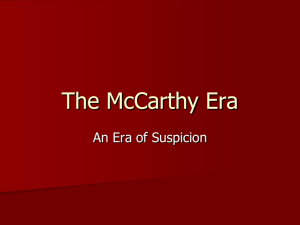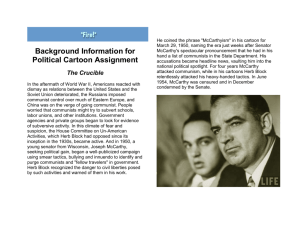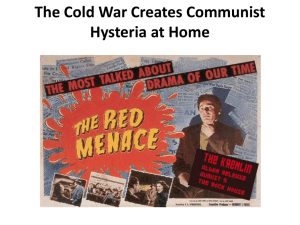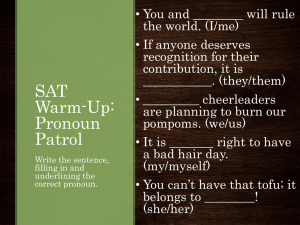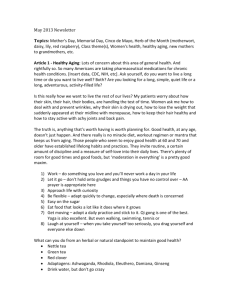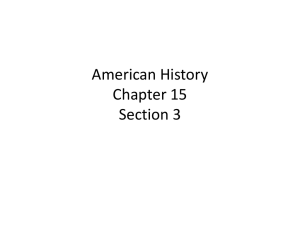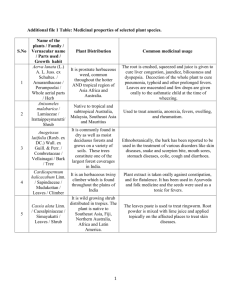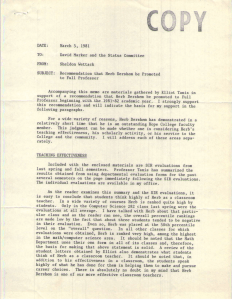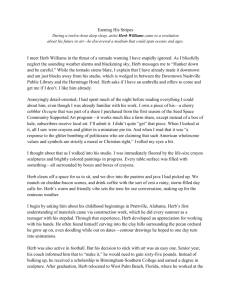McCarthyism
advertisement
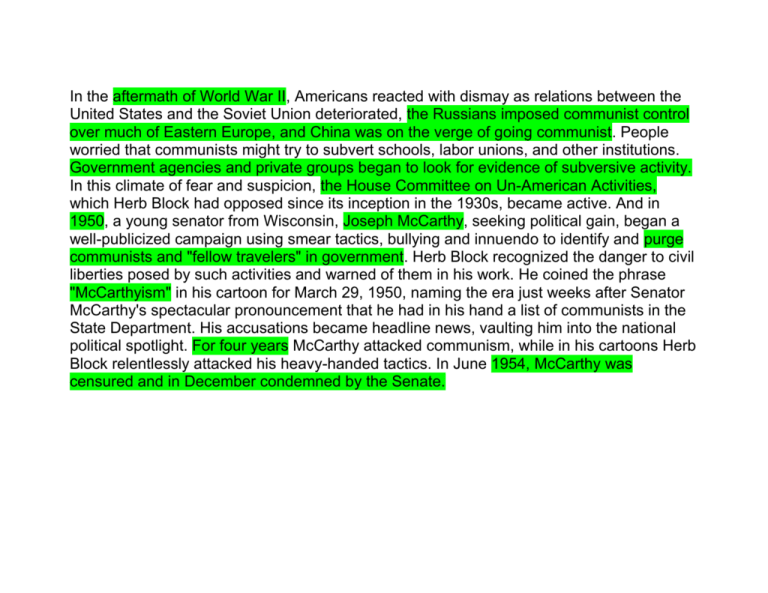
In the aftermath of World War II, Americans reacted with dismay as relations between the United States and the Soviet Union deteriorated, the Russians imposed communist control over much of Eastern Europe, and China was on the verge of going communist. People worried that communists might try to subvert schools, labor unions, and other institutions. Government agencies and private groups began to look for evidence of subversive activity. In this climate of fear and suspicion, the House Committee on Un-American Activities, which Herb Block had opposed since its inception in the 1930s, became active. And in 1950, a young senator from Wisconsin, Joseph McCarthy, seeking political gain, began a well-publicized campaign using smear tactics, bullying and innuendo to identify and purge communists and "fellow travelers" in government. Herb Block recognized the danger to civil liberties posed by such activities and warned of them in his work. He coined the phrase "McCarthyism" in his cartoon for March 29, 1950, naming the era just weeks after Senator McCarthy's spectacular pronouncement that he had in his hand a list of communists in the State Department. His accusations became headline news, vaulting him into the national political spotlight. For four years McCarthy attacked communism, while in his cartoons Herb Block relentlessly attacked his heavy-handed tactics. In June 1954, McCarthy was censured and in December condemned by the Senate. "It's okay – We're hunting Communists" The Cold War revived the anti-communist hysteria that had gripped the United States after World War I. In 1947 Congress revived the House Committee on Un-American Activities (HUAC), opposed by Herb Block since its inception in the 1930s and declared by President Truman to be itself the most unAmerican activity. Herb Block comments: "The FBI, under J. Edgar Hoover, helped provide the committee with material from its aptly named ‘raw files'. Some producers, directors and screen writers refused to testify or to play the ‘name game' in which the committee demanded the names of associates, who could then be called on to name others thus providing an ever-expanding list of suspects to be summoned." "It's okay – We're hunting Communists," October 31, 1947 Ink, graphite, and opaque white over graphite underdrawing on layered paper Published in the Washington Post (18) LC-USZ62-127327 "Fire!" By 1949, the Soviets had expanded their control to cover most of Eastern Europe, and it appeared that China would soon fall to the communists as well. "The fear-filled forties and fifties were a dark period when the spread of communism abroad increased anxieties and frustration at home," wrote Herb Block. In their zeal to stamp out all signs of subversion in the United States, professional and amateur anticommunists threatened to suppress American liberties as well. "Fire!" June 17, 1949 Reproduction from original drawing Published in the Washington Post (25) "You read books, eh?" During the postwar anti-communist campaign hundreds of elementary and high school teachers were investigated and lost their jobs, sometimes as a result of being named by proliferating "antisubversive" groups and individuals. Some individuals compiled and circulated their own blacklists, which were accepted by frightened employers and casting directors who feared being blacklisted themselves if they sought facts and fair play. The motives of some self-serving or vindictive accusers were summed up by Herb Block in a phrase: "If you can't crush the commies, you can nail a neighbor." "You read books, eh?" April 24, 1949 Ink, graphite, and opaque white over graphite underdrawing on layered paper Published in the Washington Post (24) LC-USZ62-127202 "You mean I'm supposed to stand on that?"In February 1950, Senator Joseph McCarthy captured headlines by his claims that he held in his hand, a list of names of some 205 communists in the State Department which he did not reveal. Many members of Congress, influenced by his success, began to support his heavy-handed and abusive tactics for political purposes. Here conservative Republican senators, Kenneth S. Wherry, Robert A. Taft, and Styles Bridges and Republican National Chairman Guy Gabrielson push a reluctant GOP elephant to mount the unsavory platform. This was the first use of the word "McCarthyism." "You mean I'm supposed to stand on that?" March 29, 1950 Reproduction from original drawing Published in the Washington Post (27)
